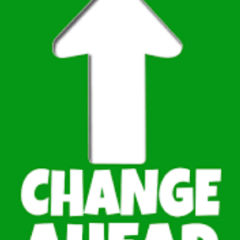Seeing students for who they are and where they come from, as well as providing each student with an equitable distribution of educational supports or resources that allow the student to feel safe and secure, is social justice in education. In order for teachers to provide equitable educational opportunities, it’s important to become aware of each student’s background.
To be clear; this is not understanding how the student has done academically or behaviorally in their educational career, but truly knowing the student’s life circumstances outside of the classroom.
Getting to know students on the surface level is no longer enough. It doesn’t allow for an equitable classroom. It is important for teachers to create a methodical approach to getting to know their students as to not yield an inequitable or unconscious biased environment. Here’s a strategy I’ve found useful:
Every year I have students describe their lives before and after school (including weekends). I ask that they include activities they are involved in, what days they participate in these activities, how much time they spend in each activity, and describe how they feel after the activity. I explain that activities can be chores, sports practice, ballet, dance, cultural/ethnic classes, religious practices, watching siblings, making dinner for their parents, and so on.
I always share examples from my untraditional childhood and explain that everyone has a different life once they leave the classroom. I allow my students to use whatever medium they feel comfortable with to convey this information about their lives. Students can create a powerpoint presentation filled with pictures and short descriptions, write narratives of their lives, or draw their daily routine.
I explain to students that the “assignment” is not graded, and its purpose is for their teacher to understand the complexities of their lives outside of class. I also point out that the information they give will help me design respectful lessons that will be mindful of their commitments outside of the classroom. Emphasizing that what they have to say about their lives matters and has value is also very important in order to build a foundation of trust with each student.
I am often surprised by how many responsibilities my 6th and 7th-grade students have either before or after school. I have found that some students wake up as early as 4 a.m. to prepare siblings for daycare while their parents get ready for work. I also find that some students have so many activities they attend after school that they arrive home around 9 p.m. several times a week leaving the only time to do homework while traveling in the car between each activity.
Other students must transfer between two busses after school to pick up a sibling at the babysitter’s house only to take another hour-long bus ride home, and then needing to cook dinner. Students do not naturally tell their teachers the in’s and out’s of their lives because it’s their normal.
Some resources I’ve found helpful in giving me ideas about how to get to know my students on a deeper level are – Cult of Pedagogy, Getting to Know Your Students Deeply and Learners Edge. They provide an array of ways to engage students and also work best for different teaching styles.
Each class of new students challenges me to discover new ways to equitably serve my students and provide rigorous opportunities of growth. Once I realize each of my student’s time commitments and degree of educational support at home, I can design lessons that are equitable and respectful of their individual life situations.
I use the data to determine if assigning homework would be unfair for any of my students. Some students may not have the time or option to complete such assignments on their own, thus creating an inequitable advantage for others who have differing home lives or after-school support. The data collected will be invaluable in shaping the culture and environment of the classroom.
Making the commitment to thoroughly get to know your students will ensure the building of positive relationships and equitable education for each student.

I love this idea, Swan! I think it is especially appropriate for an EL classroom, where I teach, because of the use of visuals. It can definitely be adapted to even allow participation from students who are new to country and not English proficient.
Janet,
Happy to share my experience. Mold the idea and make it your own to fit your specific demographic. Doing such activities are baby steps towards social justice within education.
Ok, I’m so going to steal this. Thank you, Swan!